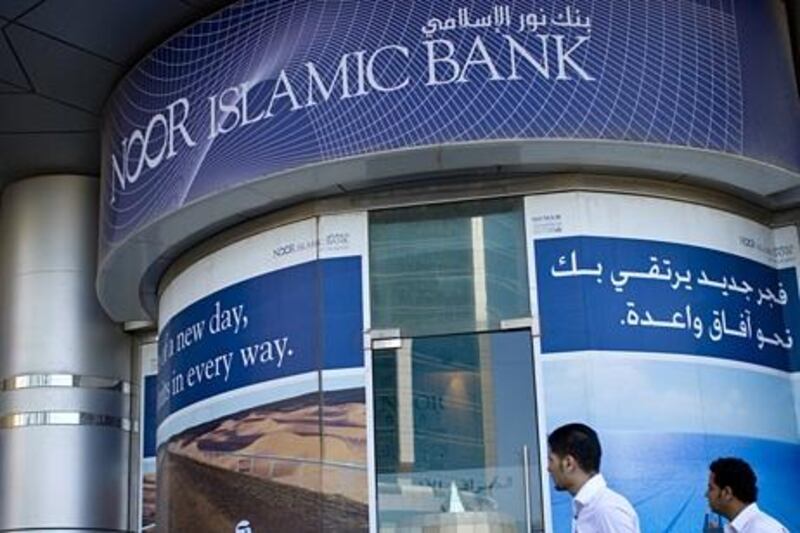A federal credit bureau and targeted property tax would curb speculation more effectively than mortgage caps, a top Islamic banking chief said yesterday.
Hussain Al Qemzi, the chief executive of Noor Islamic Bank, told The National that the Central Bank should explore other methods of controlling property speculation rather than a recently announced increase in loan-to-value ratios.
The call came as lenders submitted a proposal to the Central Bank yesterday requesting that the 50 per cent minimum deposit for expatriates making their first property purchase be lowered to 30 per cent, according to two bankers with direct knowledge of the matter.
Earlier the Emirates Banks Association said that it had submitted a proposal to the Central Bank to amend the mortgage rule, having earlier asked to postpone implementation by 30 days. That statement did not provide details of banks’ proposals.
“You’re really isolating a lot of serious buyers of mortgages from accessing the market,” said Mr Al Qemzi. “There are many ways of doing this without hurting the market and without slowing down the growth we’ve seen.”
Last month, the Central Bank directed lenders to impose a 50 per cent minimum down payment and a 60 per cent deposit on their second sales. Emiratis must make a 30 per cent down payment on their first purchase and 40 per cent on further sales.
Since then, estate agents have warned that the mortgage market dried up almost overnight while commercial banks have lobbied the Central Bank for a reprieve.
A federal credit bureau to better assess the creditworthiness of prospective buyers would help to remove so-called “flippers” who buy properties only to resell them when the value rises, said Mr Al Qemzi. The Government should also explore a levy on property buyers who resell within a certain period of time to limit speculators, he added.
“I understand the Central Bank’s position. We just came out of a crisis,” he said. “The Central Bank is really concerned that we don’t repeat the mistakes … on the other hand, banks need to do business.”
The reduced rate of mortgage lending would hammer the value of banks’ property assets and leave them with more liquidity than they are able to deploy, hurting overall profitability, Mr Al Qemzi added.
Speaking earlier this week, Hamad Buamim, a Central Bank board member and the director general of the Dubai Chamber of Commerce and Industry, defended the mortgage cap against its many critics.
“I don’t believe this will have an impact negatively on the property market,” he said. “There is always consultations, even going forward between the banks and the Central Bank, and I believe they will reach an agreeable solution.”
In addition to helping to clamp down on speculation in the property market, the existence of a federal credit bureau would also help to reduce banks’ reliance on security cheques, provided that alternative instruments of payment are enabled, said Mr Al Qemzi.
“The credit bureau isn’t something difficult to set up,” he said. “The data is available within the banks.”
The banking sector did not need to reinvent credit scoring, he added, saying that the benefit of a functional credit bureau would be a healthier banking sector.
“The existence of the credit bureau is going to create a lot of discipline in the market, for banks and customers … Today, banks are faced with no alternative [but to use cheques].”
Some 1.5 million cheques failed at the point of use during 2011, representing payments of Dh55.3 billion (US$15.05bn) and about one in every 20 used.
“We in the bank are not in the business of putting people behind bars,” said Mr Al Qemzi.
* with reporting by Tom Arnold
[ ghunter@thenational.ae ]





